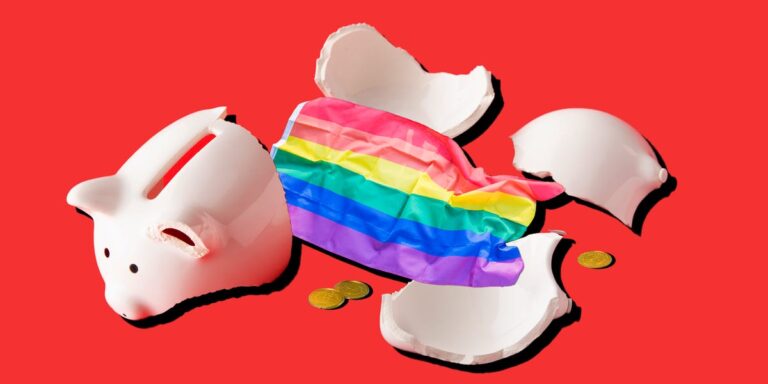Challenges Facing Pride Events: Corporate Sponsorship Cuts Amid Political Climate
The lead-up to this year’s Pride celebrations across the U.S. is marked by an unusual hesitance from corporate sponsors. Kevin Kilbride, who oversees media and marketing for New York City Pride, notes that approximately one-third of corporate partners remain hesitant to commit financial support this year due to an array of political and economic factors.
Corporate Hesitation and Economic Concerns
Many potential sponsors are citing concerns related to the current political landscape, particularly the federal administration’s stance on diversity, equity, and inclusion (DEI) initiatives. Companies are also expressing apprehension regarding potential economic instability, which has led to more cautious decision-making compared to previous years. In one notable instance, a major corporate sponsor has opted to remain quiet about its participation while continuing to provide financial backing.
“Our businesses have long been leaders in trying to support this community and push this movement forward,” Kilbride remarked. “It’s unfortunate that this commitment is not universally shared among former partners.”
Declines in Sponsorship Across Major Events
Similar trends are emerging from other Pride organizations. In San Francisco, notable sponsors including Anheuser-Busch, Comcast, and Diageo have chosen to withdraw their support, resulting in a projected shortfall of $200,000 from a $4.1 million budget. Executive Director Suzanne Ford highlighted that the rationale behind these withdrawals has been vague but undoubtedly linked to the prevailing political climate.
Ford noted, “The Trump administration and the war on diversity, equity, and inclusion has affected some corporations’ decisions about who they sponsor. Some corporations are hedging their bets, trying to stay out of the fray.”
Community and Grassroots Support Grows
Despite these challenges, there is a silver lining, as the heightened visibility of corporate withdrawals has motivated other brands to step in. San Francisco Pride recently welcomed back Levi’s, along with attracting new sponsorship from Benefit Cosmetics and La Crema wines. Individual donations have also shown an increase, bringing in $30,000 last month alone.
Funding Shortfalls Affect Local Initiatives
In Denver, the situation is similarly bleak. Interim CEO Natalie Zanoni indicated that typical sponsors have decreased their average contributions by 62%. This decline poses a risk not only to the celebrations but also to crucial services provided by the local LGBTQ+ community center. Zanoni stated, “The decrease in funding puts these critical services at risk, such as mental health support and programming for our trans and gender-diverse community.”
A Shift in Corporate Engagement with Pride
Ryan Bos, Executive Director of the Capital Pride Alliance in Washington, D.C., reported that several sponsors, including Booz Allen Hamilton, have withdrawn amid fears of potential political ramifications as federal contracts come into play. A representative for Booz Allen reiterated their commitment to supporting employee communities, clarifying that their choice to step back as a headline sponsor should not be construed as diminished support for outreach efforts.
Pragmatism Amidst Uncertainty
The reductions in corporate sponsorship are not confined to larger celebrations. Smaller events, such as those organized by Pikes Peak Pride in Colorado Springs and 406 Pride in Montana, are also feeling the pinch. These organizations continue to rely heavily on grassroots contributions, as government funding has diminished. Jessica Laney, President of Pikes Peak Pride, noted a decrease in the number of significant sponsors, intensifying the challenge of funding future initiatives.
Alexander Clark of 406 Pride described the unique challenges faced by organizations situated in areas with conservative leanings, where support from local businesses can be inconsistent. Participants’ sentiments can sway dramatically based on broader socio-political attitudes.
Redistributing Corporate Support Focus
The current environment has led many companies to reconsider their approaches to DEI initiatives altogether. Amid fears of backlash or political ramifications, some firms are withdrawing from celebratory sponsorships while redirecting their support towards community-focused endeavors, a change that may ultimately yield positive outcomes.
“We’re really back to, in a sense, what Pride was originally intended to be. It was a civil rights activation,” highlighted Bob Witeck, a communications strategist for the LGBTQ+ business community.
The Future of Pride Celebrations
As organizations navigate this turbulent landscape, there is a collective hope for increased grassroots support and community solidarity. Kilbride expressed optimism for the future, asserting that the responsibility may increasingly fall upon the queer community to self-sponsor during Pride Month.
With fundraising efforts for New York City Pride expected to conclude by early May, there’s a cautious optimism that spotlighting corporate withdrawal may encourage renewed engagement from sponsors willing to commit funding.
In a climate ripe with challenges, organizers remain determined to find pathways to success, emphasizing the need for diverse funding sources to ensure that Pride celebrations can continue to thrive.



